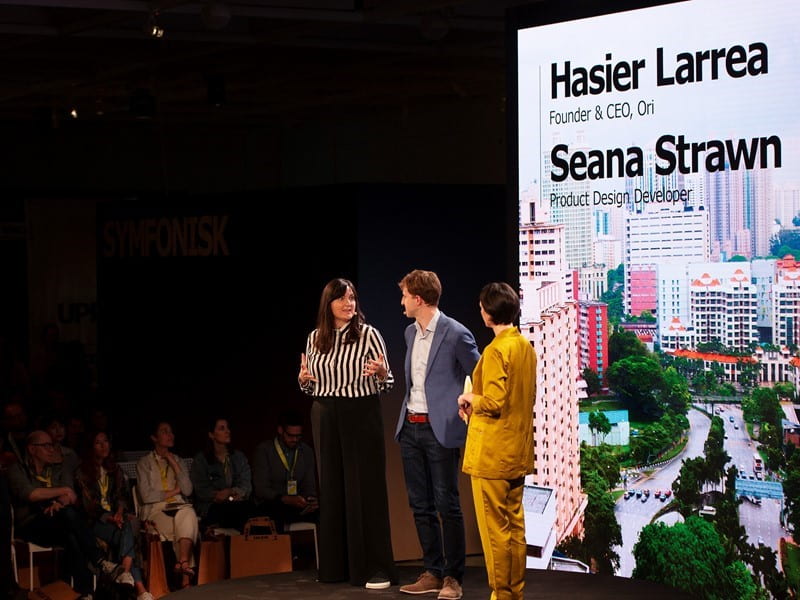Last week IKEA announced a new robotic furniture line in partnership with Boston-based startup Ori, which incubated in 2016 at the VDC. It is called ROGNAN, and is designed to use space inside the home more efficiently, timely as housing units become smaller to accommodate millions moving to cities around the world.
Ori, a startup known as impossibly ambitious, is now on track to get its solution in front of millions of new customers. But that wasn’t the first challenge. The founders (two of whom are foreign born) of the MIT Media Lab spinout have had to fight through the US immigration system to remain the country.
“Right off the bat, we encountered the immigration challenge,” according to one of the founders, Hasier Larrea, who shared his thoughts at the time.
Leaving MIT, Ori’s co-founder Ivan Fernandez de Casadevante needed an H-1B work visa right away. It was June, but the H-1B lottery wasn’t until the following April and if he was lucky enough to be selected, the visa would not be issued until October.
“We asked for all the advice we could, but honestly there was no real alternative. It was a feeling of impotence,” said Larrea.
Fortunately, Massachusetts had just created the country’s only entrepreneur life saver, the Global Entrepreneur-in-Residence program (GEIR).
Ori had heard about GEIR through a common international friend, and asked around for an introduction. The Boston Globe’s Scott Kirsner referred Ori to Jeff Bussgang, a VC who introduced Ori to the VDC, which was launching the program.
We explained to Ori how GEIR works. The VDC can sponsor H-1B visas anytime during the year by virtue of its UMass affiliation. Universities are exempt from the national lottery for H-1B visas. But there were not many prior cases. Larrea said: ”It seemed too good to be true, and we were skeptical at the beginning that it would work out in practice.”
But within a few months the VDC got the H-1B visa approved for Ivan which kept the Ori team together and focused on launching the business. During a year at the VDC, Ori secured a seed financing round, completed pilot projects, and launched its new brand with great media coverage. Ori filed its own H-1B petition in the lottery, and was notified six months later in October 2016 that it had been granted. Ivan hopes to receive his green card soon. He’s been waiting patiently for 500 days.
Looking back, Larrea said: “We can only be grateful about the opportunity to keep our core team intact, at a time where many “small companies that dream big” encounter their first real obstacle in the form of outdated immigration policy.”
One-third or more of venture capital backed startups like Ori have at least one founder from another country. To date the VDC has facilitated 60 visas for entrepreneurs. Today their companies have 890 employees, and have raised $471,987,265 in venture capital.
Check out GEIR if immigration challenges are interfering with your dream.

